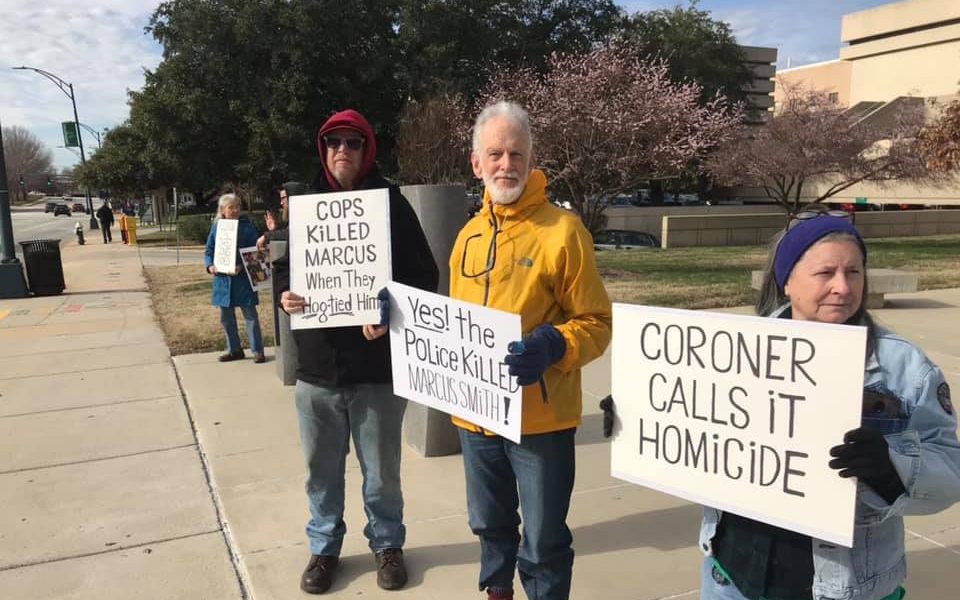It’s a wonder to those of us who lived through it that the case of Marcus Smith didn’t incite national protests.
Smith was apprehended by Greensboro police after experiencing a mental health crisis on a downtown street after the NC Folk Festival in 2018. Smith was subdued and eventually hogtied by police in a technique known as Ripp-Hobble: hands and feet bound together behind his back. He was left face down — against guidelines for that particular technique, which no other law enforcement agency in the Triad used. And as police stood there chatting with EMTs, Smith died on the ground of asphyxiation.
Like George Floyd and Eric Garner, he, too, could not breathe.
Now, after a nation watched Floyd strangle under a cop’s knee, we’re talking about defunding police — the issue is already well underway in Minneapolis, where Floyd died.
Defunding police means different things to different people. There are strict abolitionists, who feel that police departments should be dissolved entirely, the fund used to create more services that address some of the root causes of crime.
The mainstream view is more of a compromise, positing that defunding a police department allows it to do what it is supposed to do: fight crime.
Currently, our police and sheriffs’ departments act as a catchall for an awful lot of social ills. For every burglary in progress and murder, there are a dozen domestic-disturbances, overdoses, homeless situations and other non-criminal offenses, not to mention straight-up nuisance calls about black people having picnics in parks, which denigrates a police force to security valets for paranoid, white citizens.
Would it work? Let’s apply the model to the case of Marcus Smith.
Smith was distressed, police video shows — walking through slow-moving traffic on Market Street and saying, “I’m gonna kill myself.” Smith voluntarily sat in the back of a police car, but then tried to break the windows to get out. That’s when they hogtied him.
Yet Smith was clearly in the throes of a mental-health crisis. He was disoriented, suicidal. He needed help, and the blunt instrument of law enforcement was incapable of administering it.
And why should it be? Cops are supposed to enforce laws, not provide psychotherapy.
Imagine, instead, that a mental-health response unit came to Smith’s aid, were able to calm him using words and medication, brought him somewhere that’s not a jail so that he might have some chance at recovery.
Would Marcus Smith still be alive, under those circumstances? Who’s to say. But his chances were a lot better than they were when he was hogtied in the street.
Join the First Amendment Society, a membership that goes directly to funding TCB‘s newsroom.
We believe that reporting can save the world.
The TCB First Amendment Society recognizes the vital role of a free, unfettered press with a bundling of local experiences designed to build community, and unique engagements with our newsroom that will help you understand, and shape, local journalism’s critical role in uplifting the people in our cities.
All revenue goes directly into the newsroom as reporters’ salaries and freelance commissions.


Leave a Reply